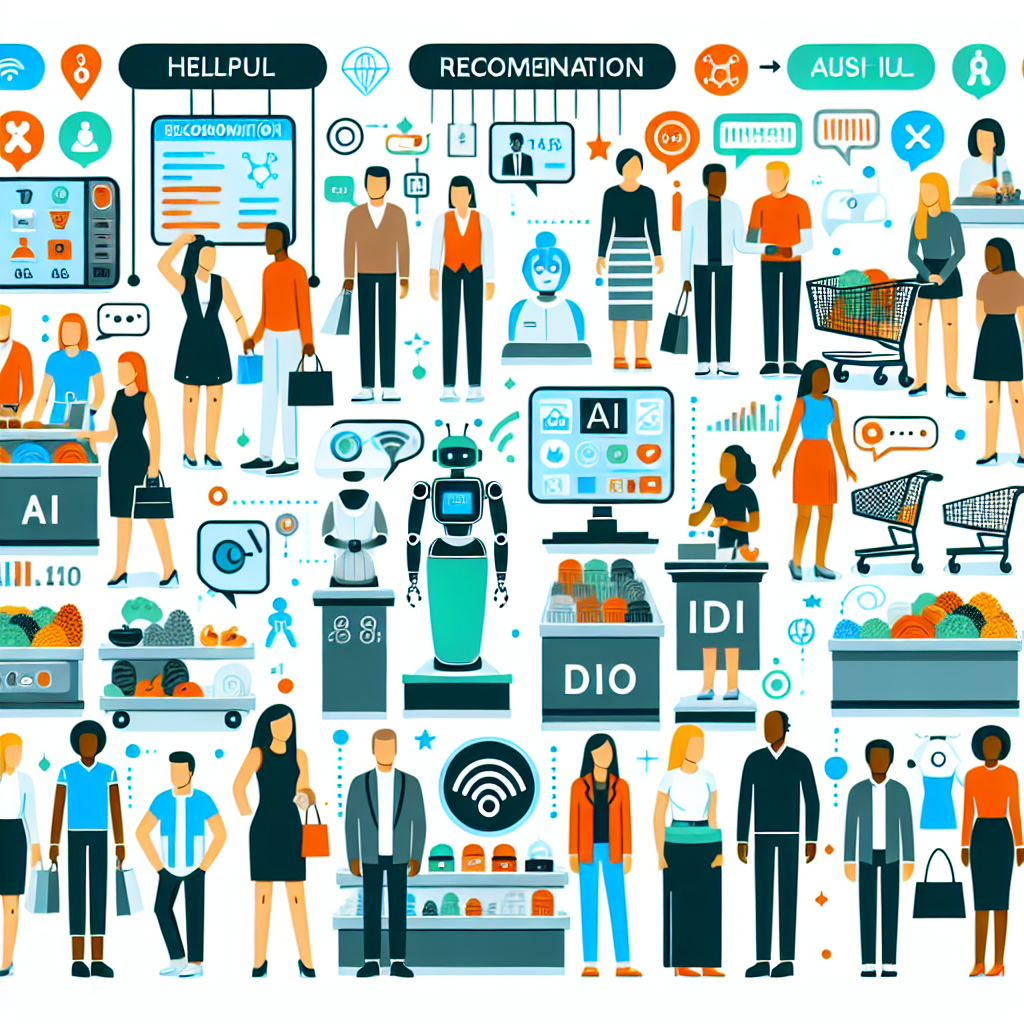Artificial Intelligence (AI) has revolutionized the way retail businesses operate, offering new opportunities for growth and efficiency. However, with these advancements come risks and challenges that can significantly impact consumer trends. In this article, we will explore the risks of AI in retail and how they can affect consumer behavior.
One of the primary risks of AI in retail is the potential for job displacement. As AI technology becomes more sophisticated, there is a growing concern that it will replace human workers in various roles within the retail industry. This can lead to a loss of jobs and economic instability for many workers, ultimately impacting consumer spending habits.
Another risk of AI in retail is the potential for privacy and security breaches. As retailers collect vast amounts of consumer data to personalize marketing strategies and improve customer experiences, there is a heightened risk of data breaches and cyber attacks. This can erode consumer trust and loyalty, leading to a decline in sales and brand reputation.
Additionally, AI algorithms can sometimes perpetuate biases and stereotypes, leading to discriminatory practices in retail. For example, AI-powered systems may inadvertently target specific groups of consumers based on race, gender, or other demographic factors, leading to unfair treatment and discrimination. This can alienate consumers and damage a retailer’s reputation in the marketplace.
Furthermore, the reliance on AI technology in retail can lead to a lack of human interaction and personalized customer service. While AI can enhance efficiency and streamline operations, it may also diminish the personal touch and emotional connection that consumers seek when interacting with retailers. This can result in a decline in customer satisfaction and loyalty, as consumers may feel disconnected from the brand.
Despite these risks, AI also presents opportunities for retailers to enhance consumer trends and drive growth. By leveraging AI technology, retailers can analyze consumer data more effectively, predict trends, and personalize marketing strategies to better meet the needs and preferences of their target audience. This can lead to increased sales, improved customer loyalty, and a competitive edge in the marketplace.
To address the risks of AI in retail and mitigate their impact on consumer trends, retailers must prioritize transparency, accountability, and ethical practices in their use of AI technology. By implementing robust data security measures, ensuring fairness and inclusivity in AI algorithms, and fostering human-centric customer experiences, retailers can build trust with consumers and drive positive outcomes in the marketplace.
In conclusion, the risks of AI in retail can significantly impact consumer trends and behavior. From job displacement and privacy concerns to biases and lack of human interaction, retailers must navigate these challenges to successfully leverage AI technology in their operations. By prioritizing transparency, accountability, and ethical practices, retailers can harness the power of AI to drive growth, enhance consumer trends, and build lasting relationships with their customers.
FAQs:
1. How can retailers address the risks of job displacement due to AI technology?
Retailers can address the risks of job displacement by investing in training and upskilling programs for their employees, creating new roles that leverage AI technology, and fostering a culture of innovation and collaboration within their organizations.
2. What measures can retailers take to protect consumer data and prevent privacy breaches?
Retailers can protect consumer data by implementing robust data security measures, such as encryption, firewalls, and multi-factor authentication, conducting regular security audits and assessments, and complying with data protection regulations and standards.
3. How can retailers ensure fairness and inclusivity in AI algorithms to prevent biases and discrimination?
Retailers can ensure fairness and inclusivity in AI algorithms by regularly auditing and testing their algorithms for biases, diversifying their data sources and training datasets, and involving diverse stakeholders in the development and deployment of AI technology.
4. How can retailers maintain a balance between AI technology and human interaction in customer service?
Retailers can maintain a balance between AI technology and human interaction by leveraging AI for routine tasks and transactions, while reserving human interaction for complex issues, emotional support, and personalized customer experiences. By combining the strengths of AI technology and human empathy, retailers can create a seamless and engaging customer experience.
5. How can retailers build trust with consumers in the use of AI technology?
Retailers can build trust with consumers in the use of AI technology by being transparent about their data practices and AI algorithms, providing clear consent and opt-out options for data collection and personalization, and demonstrating a commitment to ethical and responsible use of AI technology. By prioritizing consumer privacy, security, and empowerment, retailers can earn the trust and loyalty of their customers in the digital age.

